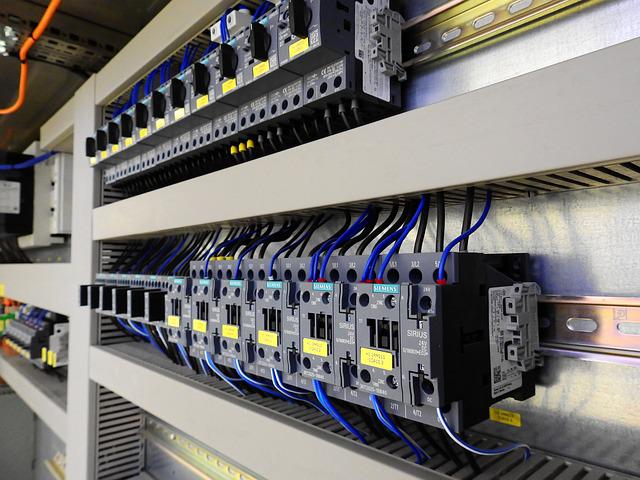
Correct rating and installation of circuit protection are required to prevent component failure or, worse, an electrical fire.
Working on your boat’s electrical systems can be a daunting and dangerous task. More than half of all boating fires result from faulty electrical circuitry. To assist boat builders, owners, and mechanics with a safe and reliable standard for onboard electrical systems, the ABYC (American Boat & Yacht Council) has dedicated significant effort to defining the correct methods for protecting a boat’s wiring and devices from overcurrent failures. Correct rating and installation of circuit protection are required to prevent component failure or, worse yet, an electrical fire. Here are some tips for proper circuit protection on your boat.
Why is Circuit Protection Important?
Your boat’s electrical system is driven by a potent source: The battery. Your battery pushes a massive amount of electrical current into your electrical systems. This allows the battery to do important work, like cranking your engine and pumping water out of your bilge. But it also creates some risks. Your marine battery will push as much current from positive to negative if given a chance. Smaller wires for much smaller loads are designed to handle less current. Without proper protection, it will heat up and begin melting the insulation off the wire.
The last thing you want to happen is to run the risk of an onboard fire while you are out sailing!
Types of Circuit Protection
There are two main types of circuit protection on boats: circuit breakers and fuses.
- Circuit breakers: These electro-mechanical devices are specifically designed to protect electrical circuits from a circuit overload. It interrupts the current flow when a fault is detected. The surge of current automatically trips the breaker. Once they have been tripped, they need to be manually reset. The main benefit of breakers is that they are re-usable and don’t need to be replaced after being tripped.
- Fuses: A fuse contains a conductor designed to fail when it reaches a set amount of current through it. When a fuse blows, the device is permanently destroyed, so it needs to be replaced. The most significant benefit of fuses is they are generally less expensive than breakers.
What to Know About ELCI
Anytime you have people and AC electricity near water, there is a risk of electrocution. That is why today’s standards for AC power on board your boat require ground-fault protection devices.
ELCI is the ground fault protection device on your boat. ELCI protects from electrical leakage by detecting small amperage differences between the “hot” black and “neutral” white wires in your boat’s AC service. Amperage difference happens when power leaks from the boat’s AC wiring into the surrounding water, causing a dangerous situation that can lead to potential electric shocks if someone is in the water nearby.
Marine Electric Systems, LLC is a Leader In the Maritime Industry
We here at Marine Electric Systems have over 30 years of industry experience. You can trust our team for reliable service and expert craftsmanship in the Maryland, Baltimore, Annapolis, and Baltimore city areas! We’re highly certified and adhere to all ABYC and NMEA regulations. We specialize in top-notch electrical solutions for recreational, commercial, and government boating clients. Anything from electrical refits, to navigation systems, or boating maintenance. To stay up to date on our services, follow us on Facebook, LinkedIn, Pinterest, Instagram, and YouTube. You can also contact us at 410-263-0807.
